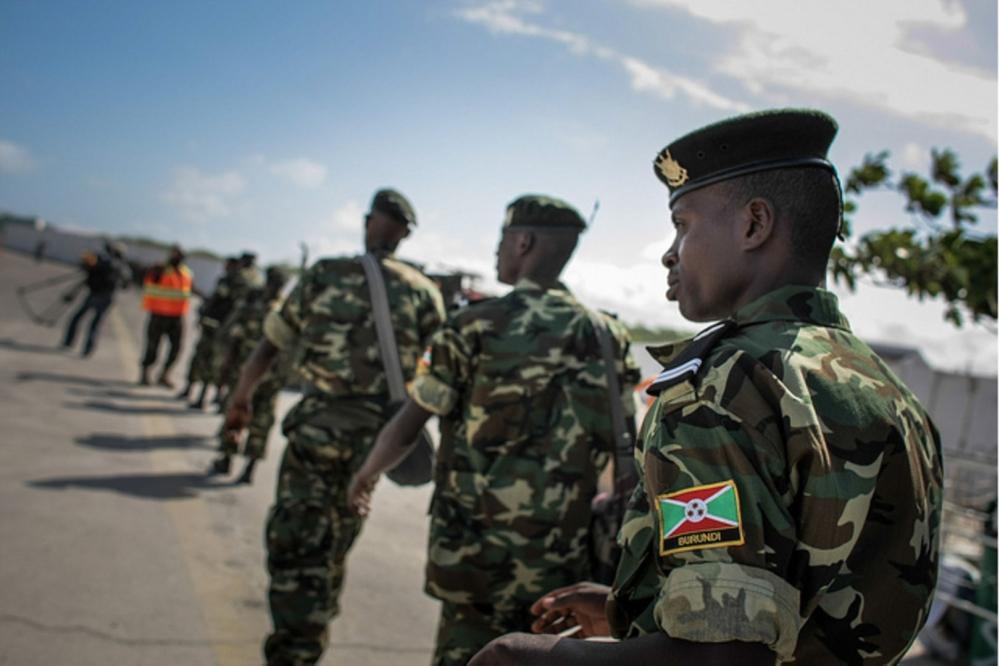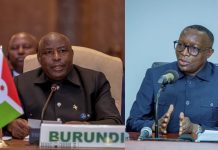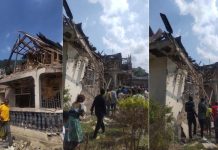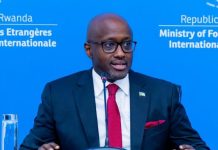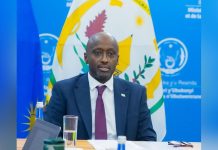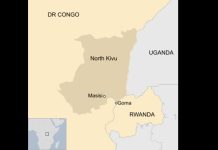Africa-Press – Rwanda. The Burundian troops that officially entered DR Congo alongside the East African Community Regional Force (EACRF) in November 2022, have remained in the country even after the regional mission’s withdrawal.
Their continued presence, now estimated at six to seven battalions in South Kivu alone, has been linked to a worsening humanitarian crisis, particularly affecting the Banyamulenge community in Minembwe highlands which continues to be attacked as well as cut off from essential supplies, sources say.
Burundian soldiers are deployed in eastern DR Congo at the invitation of the Kinshasa government.
The EACRF mission, initially led by Kenya’s Maj Gen Jeff Nyagah, who later resigned citing threats to his personal safety, was a multinational force deployed in eastern DR Congo in November 2022 to help restore peace and stability by especially securing areas then vacated by M23 rebels in North Kivu. Though the deployment briefly stabilized parts of the region, it faltered when President Felix Tshisekedi demanded that the force must militarily confront the rebels or withdraw, prompting its premature exit in late 2023.
Soon after, reports of atrocities escalated. In October 2023, Nturo village in Masisi, a predominantly Tutsi community, was attacked and burned, killing some civilians and destroying 300 homes. Investigations implicated the Congolese army working alongside Burundian troops, FDLR militias, and local armed groups, including Wazalendo and Mai-Mai factions. FDLR is a DR Congo-backed militia formed by remnants of the perpetrators of the 1994 Genocide against the Tutsi in Rwanda.
According to observers, the situation in South Kivu has since worsened further.
“After the EACRF mission, Burundian forces entered into an understanding with President Tshisekedi, bound by a shared ethnic ideology,” Oscar Balinda, a deputy spokesperson of the AFC/M23 movement told The New Times.
“They subsequently began destabilizing Congolese Tutsi communities, particularly the Banyamulenge, in eastern DR Congo, burning villages, massacring civilians, and displacing countless others, while only a few managed to flee into our controlled territories.”
According to Balinda, these developments compelled the rebel movement to take a “serious and necessary decision,” leading to intense confrontations that culminated in the capture of European mercenaries, Burundian troops, elements of the Congolese armed forces, and various militias, along with a cache of heavy military weaponry, in Gicanga, North Kivu, in January.
“They [Burundian soldiers] are now entrenched in Uvira with about six to seven battalions, continuously recruiting and occupying the Minembwe highlands, where they have surrounded civilians and imposed a siege on the Banyamulenge, whom they target simply for being Tutsi,” Balinda said.
“The population has been cut off from markets, food, and medicine, and is being starved into submission.”
He condemned the obstruction of humanitarian aid, recalling an incident in which a relief aircraft was bombed while delivering supplies to civilians in Minembwe, an attack the movement blamed on the Congolese government and its Burundian allies.
Balinda said the Congolese government coalition forces moved their operations from North Kivu to South Kivu after a series of defeats, taking advantage of the region’s rugged terrain and isolation. “South Kivu has effectively become Burundian-occupied territory within DR Congo,” he noted. “Deployments continue daily despite mounting losses on the battlefield.”
He added that heavy fighting continues between AFC/M23 and Burundian forces.
“We recently clashed in Rwicankuku, similar to Gicanga, where we captured mercenaries and heavy weapons. We are doing everything possible to stop their execution plan.”
Other accounts point to political complicity. In September, Burundian troops and Wazalendo militias forced an officer, Brig Gen Olivier Gasita, who had been appointed by Kinshasa to take over operations command in Uvira, to flee because of his Tutsi identity.
Gasita had been appointed by President Tshisekedi to command Uvira, replacing Brig Gen Daniel Mwaku Mbuluku, who reportedly died of a “sudden health crisis while on duty,” according to official accounts.
Ignored calls
Alex Mvuka, a Congolese researcher on Great Lakes conflicts, said the international community has ignored the worsening crisis. “The Burundian army is using starvation as a weapon,” he said.
“They occupy vast territories, block aid, and prevent movement. The area has become a concentration camp, over 3,000 people have been killed, not counting those dying from hunger and disease.”
Mvuka added that Burundi’s involvement is driven by “ethnic hatred, geopolitical motives to curb the assumed Rwandan influence, and financial incentives from Kinshasa.” He accused the Congolese government of complicity, saying, “They sponsor armed groups to uproot the Banyamulenge. There’s no intent to protect them.”
“This is a serious issue,” Mvuka said. “The alliance between the Burundian army and FARDC is not rooted in regional security strategy but in promoting an ideology of hate and genocide. We have tried to raise awareness among international and regional actors, yet nothing has been done. Meanwhile, Burundian forces continue to set up roadblocks to prevent civilians from finding food.”
He urged regional leaders to intervene, warning that “violence rooted in genocide ideology will inevitably spill across borders.”
Amb Joseph Mutaboba, a political analyst closely monitoring the crisis, described the actions of Burundian and allied forces as war crimes.
“Starving civilians by blocking access to food and water is a central tool of genocide,” he said. “These deliberate deprivations target the Banyamulenge with effects equal to mass killing.”
Mutaboba noted reports of Burundian soldiers turning back Banyamulenge civilians heading to markets near Bijombo and Minembwe.
“While North Kivu remains the epicenter of conflict, South Kivu’s crisis is distinct, marked by alliance-driven abuses, fewer peacekeeping forces, and massive protection gaps,” he observed.
Reports indicate that in Minembwe, over 548 villages, 134 schools, 41 health centers, and 25 markets have been destroyed, while more than half a million cattle have been looted. “Minembwe looks like a concentration camp,” Mutaboba said. “Infrastructure has been erased, and civilians are trapped.”
Commenting on prospects for peace, particularly the Doha process, Mutaboba said the initiative has largely stalled, diminishing hopes for de-escalation. He attributed this to the Congolese government’s lack of political will, which has made implementation difficult.
“Without verifiable commitments and genuine inclusion, the peace process risks remaining symbolic rather than effective,” he said. “At its core lies a deep lack of trust and political will. Ongoing atrocities, including government drone attacks on populated areas in Minembwe, Masisi, and Walikale, only deepen that mistrust.”
He added that since the conflict reignited in 2021, numerous overlapping peace initiatives have emerged, often incoherent and lacking internal legitimacy.
“The legitimacy of current peace deals is contested,” Mutaboba observed. “They coincide with growing criticism of President Tshisekedi’s failure to end the violence, and civil society views these agreements as externally driven and insufficiently inclusive.”
He also criticized the international community’s muted response. “Economic interests seem to outweigh the urgency of civilian protection,” he said. “Humanitarian agencies have the capacity to help but hesitate to engage with the already marginalized Banyamulenge.”
“Open humanitarian corridors, allow full access for UN agencies, investigate those responsible for abuses, and reaffirm equal protection for all communities,” Mutaboba added, urging for sanctions against perpetrators, increased humanitarian funding, and the revival of the Doha process with accountability mechanisms.
Regionally, Mutaboba added, there must be a ceasefire in the Hauts-Plateaux, “a joint verification mission under the Luanda or Doha [peace] tracks, and command directives guaranteeing market and aid access. The world cannot stay silent while a population is starved to death.”
For More News And Analysis About Rwanda Follow Africa-Press

